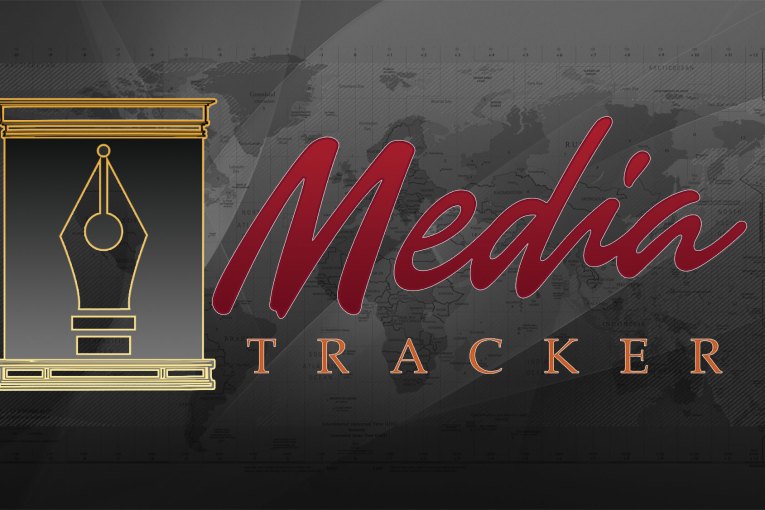
Media Tracker lists the challenges and achievements of the journalists and media organisations worldwide. Here’s a list of journalism at risk stories in the recent month. We would like to thank international media protection organisation and news outlets for their content.
- International human rights and media organisations recently called out against the attacks on Taha Siddiqui and other Pakistani journalists. They demanded immediate and effective investigation to be carried out by the authorities and an an end to impunity for such attacks.Taha Siddiqui, a reporter for Guardian, France 24, escaped an abduction attempt, sustaining beating and threats. This happened as he was on his way to Islamabad airport when the car he was traveling in was besieged by 10 armed assailants. The local police registered a case against anonymous culprits.According to media reports, the journalist has previously come under fire for his work, receiving a summons last year from the country’s Federal Investigation Agency for posting tweets deemed to be critical of the military.
(Amnesty International)
- Foreign journalists in China called Jonathan Kaiman to respond publicly after law student Laura Tucker posted an account on Thursday of an incident from 2013, in which she felt Jonathan had pressured her into having sex with him. Jonathan, the Foreign Correspondents’ Club (FCC) president and Los Angeles Times Beijing Bureau Chief, publicly apologised for the sexual misconduct.Journalists at the Washington Post, Financial Times and Agence France-Press were among those on Twitter calling for Kaiman and the FCC to respond. Jonathan neither resigned from his position nor faced any disciplinary action by his employers.
(HKFP)
- The Paraguayan courts have, in a landmark judgment, sentenced Vilmar Acosta, the former mayor of Ypedju, for his involvement in the assassination of journalist Pablo Medina and his assistant, Antonia Almada.Pablo, a correspondent for ABC Color in Curuguaty, was ambushed and killed on 16 October 2014. According to the Paraguay Journalists’ Union (SPP), he was shot multiple times with a 9mm caliber gun at a close range, receiving wounds to head and chest. Medina was with two other people at the time of the attack; Antonia Almada, 19, was shot multiple times and died in hospital in Curuguaty. His other assistant was unharmed and was able to call for help. At the time, SPP was certain that Pablo’s murder was carried out by drug trafficking groups who had threatened him before. Pablo been granted police protection.
(IFEX)
- Said Mehdi Hosaini, a journalist working for Afghan Voice News Agency, was killed in the suicide bomb attack at the Tebyan Culture Center building in Kabul, Afghanistan.
According to reports, nine other journalists and media staff, including some working for Shamshad TV, were injured in the attacks. The suicide attack killed 40 people and injured 80 others in total. The Islamic State of Iraq and the Levant (ISIS) claimed responsibility.
(IFJ)
- The Iranian government blocked internet access on mobile networks, social media services like Facebook and Instagram, as well as messaging services like Telegram to stifle government criticism and stop protestors from organizing. The mass protests in Iran started on December 29th and over the last ten days spread beyond 130 cities across Iran. To thwart the censorship, many people are using virtual private networks (VPNs) to communicate. It’s estimated that out of the 80 million people in Iran, 40 million use Telegram.Recently, the UN agency for human rights issued a joint statement, called on regime authorities to respect the human rights of protesters, including their rights to freedom of expression and peaceful assembly.
(CJFE)
- The soldiers from the Taiz Governorate Security Committee, Yemen, forcibly closed down the Qatari broadcaster Al-Jazeera’s Taiz office on 10th
The Taiz Security Committee statement said that the channel had allegedly attempted to create divisions between “legitimate authorities,” referring to the Aden-based government, and the Saudi Arabia-led coalition, supporting the government. Al-Jazeera’s negative coverage of the Yemeni Army’s campaign against the Houthis, was another reason for the bureau’s closure.
Aljazeera bureaus throughout territory controlled by the Yemeni government have also received threats from unknown sources.
Earlier last year, Saudi Arabia closed Al-Jazeera’s bureaus following a diplomatic dispute with Qatar. Soon after several other countries in the region, i.e., the UAE, Bahrain and Egypt, blocked Al Jazeera’s website in their countries, alleging that the broadcaster is an arm of the Qatari state.
(CPJ)
- An article last week in The Tribune, a Chandigarh based daily, Rachna Kharia’s investigative reporting, exposing major flaws in the confidentiality of India’s gigantic biometric database, resulted in her being charged with impersonation, cheating, forgery, and using a forged document. More specifically, the complaint brought by the Unique Identification Authority of India (UIDAI), accused her of illegally buying a service offering complete access to its 1 billion individual entries.Her investigative report revealed that the confidential details of any one of the more than 1 billion Indian citizens with an Aadhaar ID card can be obtained by means of payment of 500 rupees (6.5 euros) to anonymous vendors on WhatsApp.The world’s biggest biometric database, Aadhaar (“base” in Hindi) was launched in 2009 with the goal of assigning a 12-digit identity number to 1.3 billion Indian citizens to which everything is linked: ID card, fingerprints, iris scans, bank accounts, phone numbers, bills, accommodation, reservations, tax payments, exams passed, pregnancies and so on. In other words, all the personal data that no one would want revealed.
(RSF)



